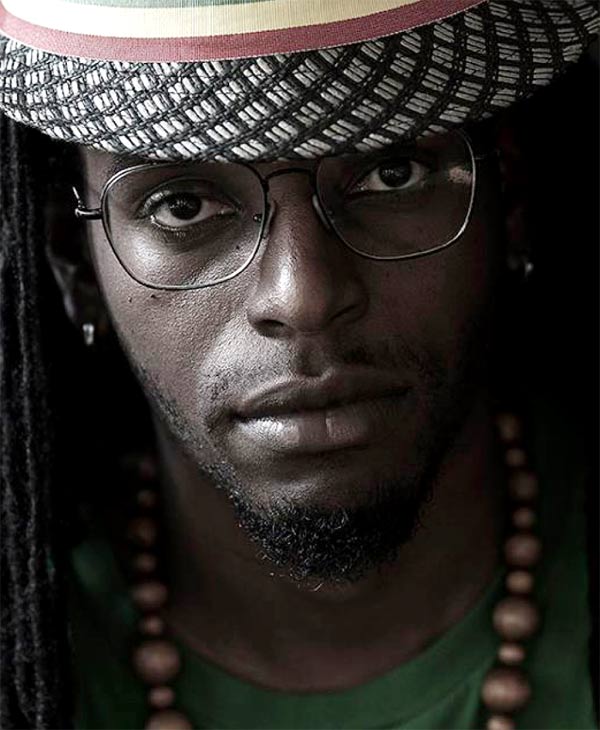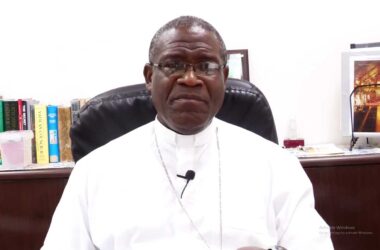
IT is always a pleasure of mine to dialogue with individuals who, to put it simply, know their stuff and so, whilst I enjoy all my interviews, I was overly excited to pick the brilliant brains of this week’s FITC.
Chevy Eugene (AKA Chevy X King) is a Ph.D student at York University in the Social and Political Thought programme whose research focuses on the arts as a key component towards Caribbean economic integration.
He also has a Master of the Arts (MA) degree in Humanities and considers himself an “artivist” (activism through the arts) but as if that wasn’t enough, Eugene is a dedicated community worker, an emerging writer, a growing photographer, and an aspiring filmmaker. In early 2011, he started to work on his first full-length film entitled ‘From Slaveships to Relationships: Narrations of Healing’.
It is for the reasons behind his film that I jumped at the chance to interview the father of one about his very active stance on the issue surrounding race and inequality, particularly surrounding Black people in today’s world.
Eugene is part of a movement which sees members of the Black community worldwide stand up and speak out against the many injustices faced by their fellow Black brothers and Sisters at the hands of a number of entities including the Police, big corporations and non-Blacks so to speak.
Today, Eugene tells all about his views on the touchy subject and just how he plans to make his contribution in the struggle faced by his people.
The VOICE: You are part of a movement which is increasingly gaining popularity in certain creative spaces. This movement involves working with the Caribbean Diaspora and people in the Caribbean region. Please tell me more about that?
Chevy: I am the director and founder of the Caribbean Creative Arts Alliance (CCAA), which is based in Toronto. The organization aims to work with various expressions of the arts to establish or strengthen bridges with grassroots organizations, governments and policymakers across the Caribbean and its diaspora, to foster Caribbean integration through non-traditional channels. The movement places young people at the centre of the creative methodology and advocates for youth to be part of the decision-making processes of integration. The organization contains members from various backgrounds which includes academics, lawyers, filmmakers & poets, just to name a few.
The VOICE: What qualifications do you have in that field?
Chevy: I have worked as a community engagement front line worker for almost ten years with NGOs and in the private field. I completed my Bachelor’s degree in International Development Studies with a focus on culture, gender, and the arts. I also obtained a Masters of the Arts (M.A.) degree in Humanities, where I developed a model that utilizes the arts as a fluid medium that encourages Caribbean integration. As a PhD student, I intend to put that proposed model into practice with CCAA playing a central role in bringing the grassroots, governments, and policymakers in a mutual space where cultural, political, and eventually economic integration can take place. My post-secondary school education has taken place at the University of the West Indies, Cave Hill, Barbados, as an exchange student, but the foundation of my educational background is at York University.
The VOICE: Why do you feel the need to be one of those voices of change?
Chevy: In 2015, I was blessed to be the Caribbean (Saint Lucian) representative at the Fellowship for People of African Descent in Geneva, Switzerland at the United Nations. This opportunity allowed me to learn about the mechanisms of the Office of the High Commissioner of Human Rights (OHCHR) and how it can be utilized towards the growth and development of the Black communities in the two countries I call home. One of my mandates since completing the programme at the UN is to launch the International Decade for People of African Descent in Toronto (October 2016) and Saint Lucia (May 2016). This action component is being supported by the UN in partnership with CCAA, Headphunk, Centre for Research on Latin America and the Caribbean (CERLAC), and Caribbean Performing Arts Federation (C-PAF) with the hope of getting the governments, grassroots initiatives and private organization to support the launch in each respective country.
The VOICE: What hurts you the most about the way many Black people choose to live their lives in today’s world?
Chevy: What hurts me is not how Black people choose to live their lives, but the violent responses by the systems of power towards Black bodies by the legal way we choose to live our lives. When you look at what’s happening in countries like the US, Canada or Brasil, for example, you see a pattern that says that Black folks were born for crime due to the melanin their skin possesses. For instance, the Black Lives Matter Movement in the US has been labeled a terrorist undertaking because of the initiative advocacy to protest the murders of innocent Black men. Not only must we protest the killings of our “chocolate brothers and sisters” but by demanding justice, mourning, and by organising, the initiative has been labelled a threat by the system of power. In shouting out for our humanity we have been branded as menaces because we are not seen as human beings, hence the importance of the Black Lives Matter movement because Black lives do matter.
The VOICE: Do you think that you are making or can make a significant difference in the lives of Black people in your community/country?
Chevy: I think we must all start with our immediate family and take it from there. I am trying to be the best father I can be to my daughter and show her nothing but love whenever we interact, even if it’s through a smile. Also to make sure I am a great role model to my brothers, sisters, and the younger kinfolks in my family. I think at times we jump into supporting the Black communities and we tend to ignore our immediate family, which is the foundation of a healthy community. Slavery was a 400 year violent process so we must think not just for the immediate generation, but plant seeds of healthy and empowering values for seven generations. It’s important that each proceeding generation has a similar mentality to continue the investment in uplifting the Black communities.
The VOICE: The month of February is seen as Black History Month in countries like the US, how does it make you feel that this celebration was allocated to the shortest month in the year and that across the pond in Britain, it was allocated to the month where the dead is celebrated more? (October)
Chevy: To be honest, I don’t pay attention to the month that is used to celebrate our history and culture, I just know February is the coldest and shortest month in the year. Just the fact that we are told when we can celebrate US by the systems of power is absurd to me. Personally, I celebrate my heritage and culture 365 days a year and 366 days every leap year. However, I do see the relevance of African Liberation Month/Black History Month. It can serve as a platform to initiate conversations about our culture and heritage to people who are not informed about our rich history.
The VOICE: How far do you think Black people have come from that place of oppression that has kept them behind for so many centuries?
Chevy: I think we have come a long way, but there is still lots of room for growth. The growth needs to extend beyond our social and cultural interactions into the economic space. Although we are culturally a rich people we are limited with the economic system that governs our country. We should not become weary because it’s a marathon and not a sprint. We are also a resilient people…we must continue to learn from our history, move forward and pass on the baton to the next generation.
The VOICE: What do you think it will take to see that dream of freedom become a reality?
Chevy: There are multiple layers to this question, but I will look at it from an economic perspective, which can influence the political and the cultural. In order for us to see our “freedom” become a reality, whatever freedom means to you, there must be a dismantling of the white supremacy, capitalist, and patriarchal-man driven system that governs the entire globe. I think that we in the Caribbean have to create a system that works for us without exploiting each other. I am not saying that it should be communism or socialism, but it has to be an economic structure that is created by us for us towards our development.




![Simón Bolívar - Liberator of the Americas [Photo credit: Venezuelan Embassy]](https://thevoiceslu.com/wp-content/uploads/2025/12/Simon-Bolivar-feat-2-380x250.jpg)







Beautiful article…Chevy x am proud of you!!!!!!
thanks!
Outstanding!
York U. Pleasant ambiance among Caribbean student body that can be empowered to be a proactive resource for the immigrant pool with less formal edu .
Would you consider a mission to mentor your dissertation model among the truly desperate for leadership of the “Black Caribs of Central America”?
They were exiled by the colonial British from St Vincent.
You have what it takes- Right On!
send me an email: chevyxking@gmail.com